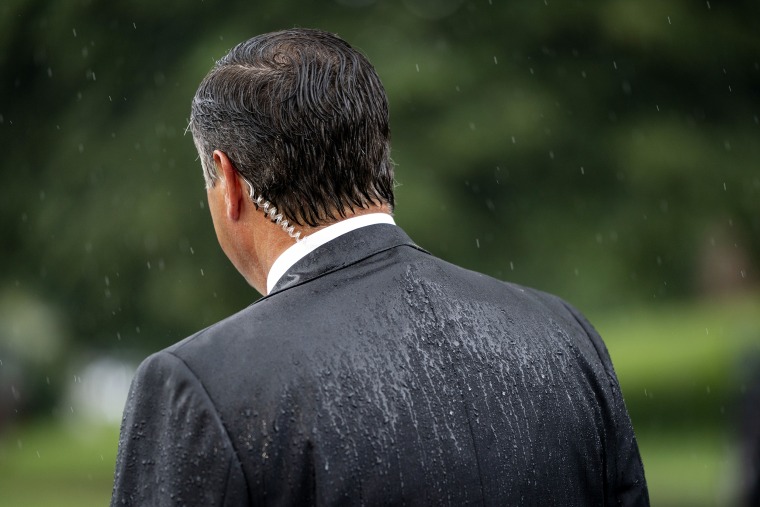The controversy came to the fore unexpectedly last week. Joseph Cuffari, the inspector general of the Department of Homeland Security told lawmakers that his office sought Secret Service text messages from Jan. 5 and Jan. 6, 2021, but he was told that they’d been erased.
Just as importantly, as regular readers know, he added that the Secret Service “erased those text messages after [the DHS watchdog office] requested records of electronic communications.”
The Jan. 6 committee subpoenaed the missing materials, but the Secret Service said it couldn’t help investigators because the messages no longer exist. The agency insists nothing untoward happened: The relevant data was lost, the Secret Service said, when phones were reset to factory settings as part of a pre-scheduled “system migration.”
The number of people inclined to accept this at face value appears to be shrinking. Rep. Jamie Raskin, a Democratic member of the Jan. 6 committee, told reporters this week, “I smell a rat.”
It was against this backdrop that we learned of an apparent criminal probe into the matter. NBC News reported:
The Department of Homeland Security’s Inspector General has launched a criminal investigation into the circumstances surrounding the destruction of Secret Service text messages that may have been relevant to inquiries about the Jan. 6 Capitol riot, two sources familiar with the matter told NBC News. The results of the investigation could be referred to federal prosecutors, the sources said, depending on the results.
The same report added that the inspector general’s office has informed the Secret Service that it should halt any internal investigations on the missing text messages, so as to not interfere with the newly launched probe.
This appears to be separate from the National Archives and Records Administration’s request for an investigation into the alleged “potential unauthorized deletion” of the relevant texts.
Complicating matters is a Washington Post report, published this week, that said this same inspector general’s office — which has oversight authority over the Secret Service, and is led by a Trump appointee — knew months ago about the purged texts, but didn’t tell Congress until very recently.
If you’re wondering why the DHS inspector general’s office is only now opening a criminal investigation, you’re not alone.
Nevertheless, multiple members of the Jan. 6 committee have now confirmed that some Secret Service agents have retained private legal representation, further reinforcing the seriousness of the controversy.
At the root of the story is a painfully obvious question: How could these messages have been erased? The Secret Service is trained in record preservation. It also happens to be one of the most sophisticated cyber investigative agencies on the planet.
Secret Service officials not only received multiple reminders about the need to preserve records on their phones, they also received instructions on how to prevent deletions.
And yet, here we are. It’s hardly outlandish that the Jan. 6 committee and the DHS inspector general’s office are wondering whether the Secret Service broke the law and engaged in a cover-up.

